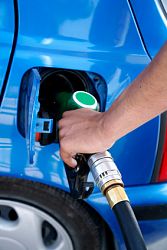

According to the Green Party, false emissions ratings for cars based on lab tests have cost the UK over £2 billion per year in lost tax revenue.
Since 2001, UK vehicle excise duty has been based on carbon emissions. Cars registered before April 2017 and producing less than 100g of CO2 per km are exempt, with the rate rising to £535 for the most polluting cars. New research published on Saturday shows that, with CO2 emissions exceeding official measures by an average of 42%, millions of vehicles have been placed in tax bands that do not reflect their true levels of pollution.
The report estimated a loss of more than £2 billion in the UK in 2016, based only on new vehicles registered since 2010, which make up around half of the cars now on the road. Car taxes would have been more than €10 billion higher across eleven EU countries last year, with the UK one of the main losers due to its large car fleet and graded tax system.
Molly Scott Cato, Green spokeswoman on tax justice in the European Parliament, said: "Taxation based on the polluter pays principle has the potential to gear up the transition to a low carbon economy. Instead, the shocking loss in potential tax revenue from cars has been matched by an air pollution health crisis in our cities and increasing CO2 emissions driving climate breakdown."
There have recently been calls for road tax to better reflect pollution after independent testing revealed that some new diesel models certified as Euro 6 compliant actually emit more than 12 times the legal limit of NOx in real-world conditions. In tests conducted by Emissions Analytics, Fiat 500X, Nissan Juke and Renault Megane models were all graded among the worst polluters. However, testers found that other diesels, including BMW 5 Series, Mercedes E Class, Audi Q2, Seat Alhambra and VW Golf models, beat some new petrol cars, lending partial support to manufacturers' claims that the newest diesel cars are the cleanest ever.
Tax changes following concern over public health and air quality in the wake of the VW scandal have seen a fall in diesel sales. All new diesels will be placed in a higher tax band from April, before a real-world driving emissions certification comes into force in 2020. Industry body SMMT has warned if consumers hold back from buying new cars, more pollution could result.